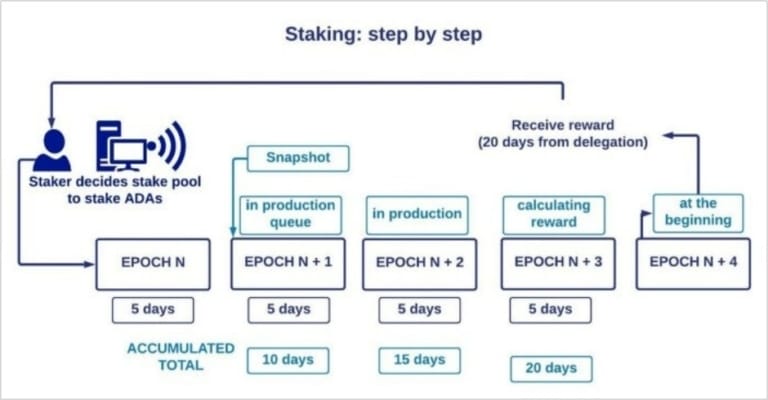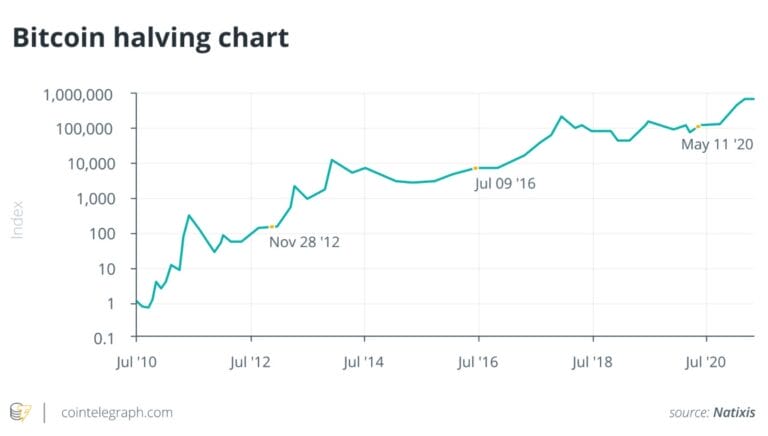
Crypto investment has been a rapidly growing field in the United States. Many US investors have become crypto millionaires and billionaires with their functioning strategies and tools like a secure wallet, cryptocurrency portfolio tracker, and exchange. Yet, recently cryptocurrencies emerged in other parts of the US. During the 2018 midterm elections, an increasing number of candidates started accepting Bitcoin and other cryptocurrencies for campaign funding.
The rise of cryptocurrency in political campaigns
Cryptocurrency has emerged as a revolutionary force in various aspects of our society, and political campaigns are no exception. In recent years, we have witnessed the increasing adoption of cryptocurrency in fundraising efforts for political campaigns. This intersection of political campaigns and crypto presents a new frontier that promises both enhanced fundraising capabilities and improved transparency. In this article, we will explore the role of cryptocurrency in political campaigns, the benefits and challenges associated with its use, and the potential impact it may have on the future of political fundraising and transparency.
Understanding cryptocurrency and its role in fundraising
Cryptocurrency, such as Bitcoin and Ethereum, is a digital or virtual form of currency that utilizes cryptography to secure financial transactions and control the creation of new units. Unlike traditional fiat currencies, cryptocurrencies are decentralized, meaning they are not controlled by a central authority, such as a government or a bank. This decentralized nature gives cryptocurrency a unique advantage in terms of fundraising for political campaigns.
One of the primary roles of cryptocurrency in political campaign fundraising is its ability to bypass traditional financial institutions and intermediaries. By accepting cryptocurrency donations directly, campaigns can avoid the fees and regulations associated with traditional payment processors. Furthermore, cryptocurrency can facilitate seamless international transactions, allowing campaigns to reach a global audience of potential donors. This opens up new avenues for fundraising and expands the reach of political campaigns beyond geographical boundaries.
How political campaigns are utilizing cryptocurrency for fundraising
Political campaigns are increasingly recognizing the potential of cryptocurrency as a fundraising tool and are actively incorporating it into their strategies. To accept cryptocurrency donations, campaigns typically set up digital wallets that enable supporters to contribute funds using various cryptocurrencies. These digital wallets provide a secure and transparent way for campaigns to receive donations, as each transaction is recorded on the blockchain, a decentralized public ledger.
In addition to accepting cryptocurrency donations, political campaigns are also utilizing blockchain technology to streamline their operations and increase efficiency. The blockchain can be used to track campaign expenditures, ensuring that funds are allocated appropriately and transparently. This level of transparency helps build trust with donors and the public, as it allows for greater accountability and reduces the risk of financial mismanagement.
Benefits of using cryptocurrency in political campaigns
The use of cryptocurrency in political campaigns offers several significant benefits. Firstly, it provides campaigns with access to a vast pool of potential donors who are familiar with and invested in the world of cryptocurrency. These individuals may be more inclined to support a campaign that embraces this innovative technology, resulting in increased fundraising success.
Secondly, cryptocurrency donations offer a level of anonymity that may be appealing to some donors. While campaign finance laws require disclosure of donor information for traditional currency donations, cryptocurrency transactions can provide a degree of privacy. This anonymity can encourage individuals who prefer to keep their political affiliations private to contribute to a campaign without fear of repercussions.
Furthermore, the use of cryptocurrency can enhance the overall efficiency of fundraising efforts. Cryptocurrency transactions are typically faster and have lower fees compared to traditional banking methods. This speed and cost-effectiveness enable campaigns to allocate more resources toward their core objectives, such as voter outreach and policy advocacy.
Challenges and risks of using cryptocurrency in political campaigns
While the use of cryptocurrency in political campaigns offers numerous benefits, it is not without its challenges and risks. One of the primary concerns is the volatility of cryptocurrency prices. The value of cryptocurrencies can fluctuate wildly, which means that campaigns accepting donations in cryptocurrency may be exposed to financial risks. The sudden devaluation of a cryptocurrency could significantly impact the campaign’s budget and financial stability.
Another challenge stems from the regulatory environment surrounding cryptocurrency. As governments and regulatory bodies grapple with understanding and regulating this emerging technology, there is a lack of clear guidelines and standards specifically tailored to political campaign fundraising. This regulatory uncertainty can pose legal risks for campaigns that are not properly compliant with existing financial regulations.
Additionally, the potential for misuse and abuse of cryptocurrency in political campaigns cannot be overlooked. Cryptocurrency donations can be used to disguise the true source of funds, potentially allowing for illegal or unethical contributions. Ensuring transparency and accountability in cryptocurrency donations is essential to maintain the integrity of the political process and prevent illicit activities.
Ensuring transparency and accountability in cryptocurrency donations
To address concerns surrounding transparency and accountability in cryptocurrency donations, political campaigns must implement robust systems and practices. Firstly, campaigns should establish clear guidelines and protocols for accepting and reporting cryptocurrency donations. This includes verifying the identity of donors and conducting due diligence to ensure compliance with campaign finance laws.
Secondly, campaigns should leverage the transparency inherent in blockchain technology to publicly disclose all cryptocurrency transactions. By providing real-time access to donation records on the blockchain, campaigns can foster trust and demonstrate their commitment to transparency. This level of transparency can also serve as a deterrent to potential illicit activities, as all transactions are publicly visible and traceable.
Furthermore, collaboration between political campaigns, regulatory bodies, and cryptocurrency experts is crucial in developing comprehensive frameworks for the responsible use of cryptocurrency in political fundraising. By working together, stakeholders can establish best practices and guidelines that balance innovation and transparency, ensuring the integrity of the political process.
Case studies of successful political campaigns using cryptocurrency
Several political campaigns have already embraced cryptocurrency and achieved notable success. One such example is the campaign of Andrew Yang, a former presidential candidate in the United States. Yang’s campaign accepted Bitcoin and other cryptocurrencies, attracting a wide range of tech-savvy supporters who were enthusiastic about his forward-thinking policies. This embrace of cryptocurrency helped Yang’s campaign stand out in a crowded field and generated significant media attention.
Another successful example is the campaign of Akon, the Grammy-nominated artist turned philanthropist. Akon launched his own cryptocurrency, Akoin, with the aim of empowering individuals in Africa and beyond. He plans to use Akoin to fund development projects and promote economic inclusion. By leveraging cryptocurrency, Akon’s campaign has garnered global support and highlighted the potential of crypto for social impact initiatives.
The future of cryptocurrency in political campaigns
The use of cryptocurrency in political campaigns is still in its early stages, but its potential impact is significant. As cryptocurrency becomes more mainstream and widely adopted, we can expect to see its role in political fundraising expand. Political campaigns will increasingly leverage the benefits of cryptocurrency, such as faster and cheaper transactions, access to a global donor base, and enhanced transparency.
However, the future of cryptocurrency in political campaigns is not without challenges. Regulatory considerations will continue to play a crucial role in shaping the landscape. Governments and regulatory bodies will need to strike a delicate balance between embracing innovation and safeguarding against potential risks and abuses.
Regulatory considerations for cryptocurrency in political campaigns
Regulatory frameworks for cryptocurrency in political campaigns are still evolving, and it is essential for campaigns to stay informed and compliant with existing laws. Campaigns should consult legal experts with expertise in both campaign finance regulations and cryptocurrency to navigate this complex landscape.
Furthermore, political campaigns should actively advocate for clear and transparent regulations that enable the responsible use of cryptocurrency in fundraising. By engaging with policymakers and regulatory bodies, campaigns can contribute to the development of frameworks that foster innovation while maintaining the integrity of the political process.
Conclusion: The potential impact of cryptocurrency on political fundraising and transparency
The intersection of political campaigns and cryptocurrency represents a new frontier that has the potential to revolutionize political fundraising and transparency. By embracing this innovative technology, campaigns can tap into a global donor base, streamline operations, and enhance accountability. However, challenges, such as volatility and regulatory uncertainty, must be addressed to ensure the responsible use of cryptocurrency in political campaigns.
As cryptocurrency continues to gain traction and evolve, it is crucial for political campaigns to stay informed and adapt their strategies accordingly. By leveraging the benefits of cryptocurrency while upholding transparency and accountability, campaigns can harness the power of this new frontier to shape the future of political fundraising.
CTA: To stay up to date with the latest developments in cryptocurrency and its impact on political campaigns, subscribe to our newsletter and join the conversation today!






